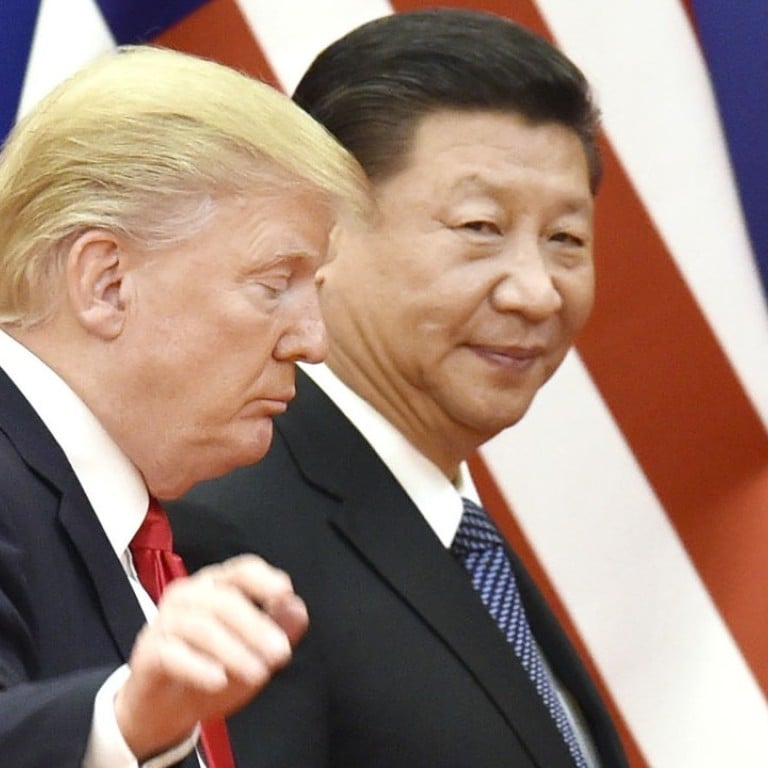
Exclusive | All eyes on Buenos Aires as Beijing and Washington hammer out the details for the high-stakes summit between Xi Jinping and Donald Trump
- Xi and Trump each could have as many as six aides joining them at the December 1 dinner after the G20 forum
- The outcome could affect the direction of Sino-US relations and influence global economic trajectories
Beijing and Washington are talking frequently as they nail down the details for President Xi Jinping’s dinner meeting with US President Donald Trump in Buenos Aires on December 1, with a major issue being the number of aides each leader will be allowed to bring to the parley, sources said.
“One big issue is to determine who will sit at the table,” a source briefed on the progress of the preparations for the leaders’ first face-to-face sit-down in a year told the South China Morning Post.
Referring to the possible groupings of leaders and aides being considered, the source said: “On each side of the dinner table, it could be one plus two, one plus four, or one plus six”.
The “one plus six” arrangement is likely to be chosen, although that plan could change, the source said. The trickier task will be establishing who the dinner guests will be as their roles could affect the atmosphere and even the final outcome of the widely watched meeting.
The sides have not yet confirmed their proposed guest lists as of Monday, the source said.
The heavy exchanges between China and the US two weeks ahead of the meeting reflect the parties’ determination to create any advantages they can with billions of US dollars of international commerce at stake as Trump’s trade war with China drags on.
China’s foreign ministry said on Tuesday that Liu He, the Chinese vice-premier in charge of trade talks, will visit Germany from November 25 to 28, partly confirming the Post report that there would be no trade talks in Washington next week.
White House chief economic adviser Larry Kudlow said on Tuesday that talks between the Chinese and US trade teams “will come to a head at the G20”. Separately, Kudlow said in an interview with Fox Business News that Trump “believes that China would like to have a deal” and “very detailed communications” are taking place at all levels of government.
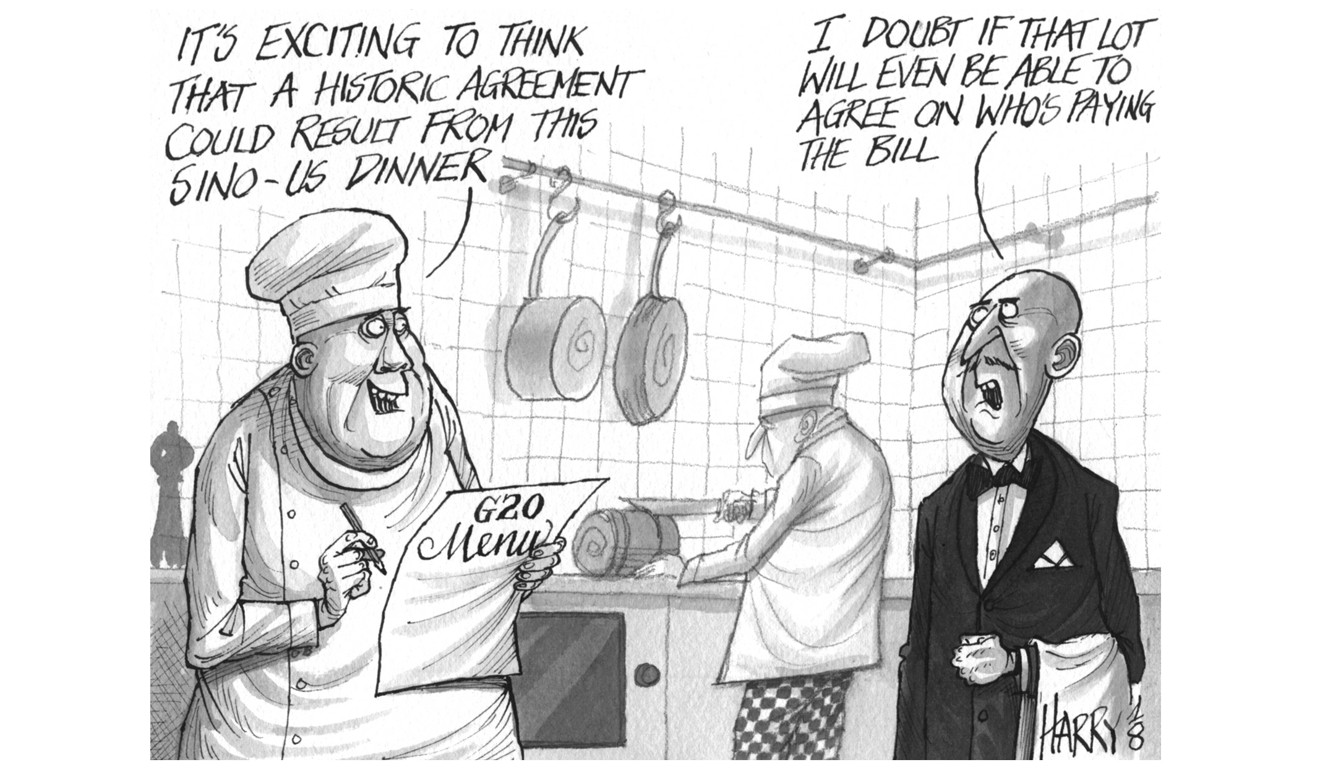
China – which could see growth impaired by the trade war through mid-2019, according to analysts – already has agreed to the timing for the meeting, in the Saturday evening after the G20 summit concludes. It also approved the venue, a high-end restaurant hotel. The name of the venue has not been disclosed.
Both the date and the venue were first proposed by the US, a sign that Trump – seeking a boost after his Republican Party’s thumping in last week’s US midterm elections – may want to make a deal.
Matthew Goodman, an expert at the Centre for Strategic and International Studies, a Washington-based think-tank, said on Tuesday that a “51/49 guess” is that “there will be some kind of ceasefire agreed to [at Argentina] largely because I think President Trump and President Xi both have an incentive to put this dispute on hold”.
For Trump, choosing the aides who would join him for the parley is a delicate matter given the friction between the hawks in his administration who have pushed for tough action on Beijing and those who have advocated a less confrontational approach, analysts said.
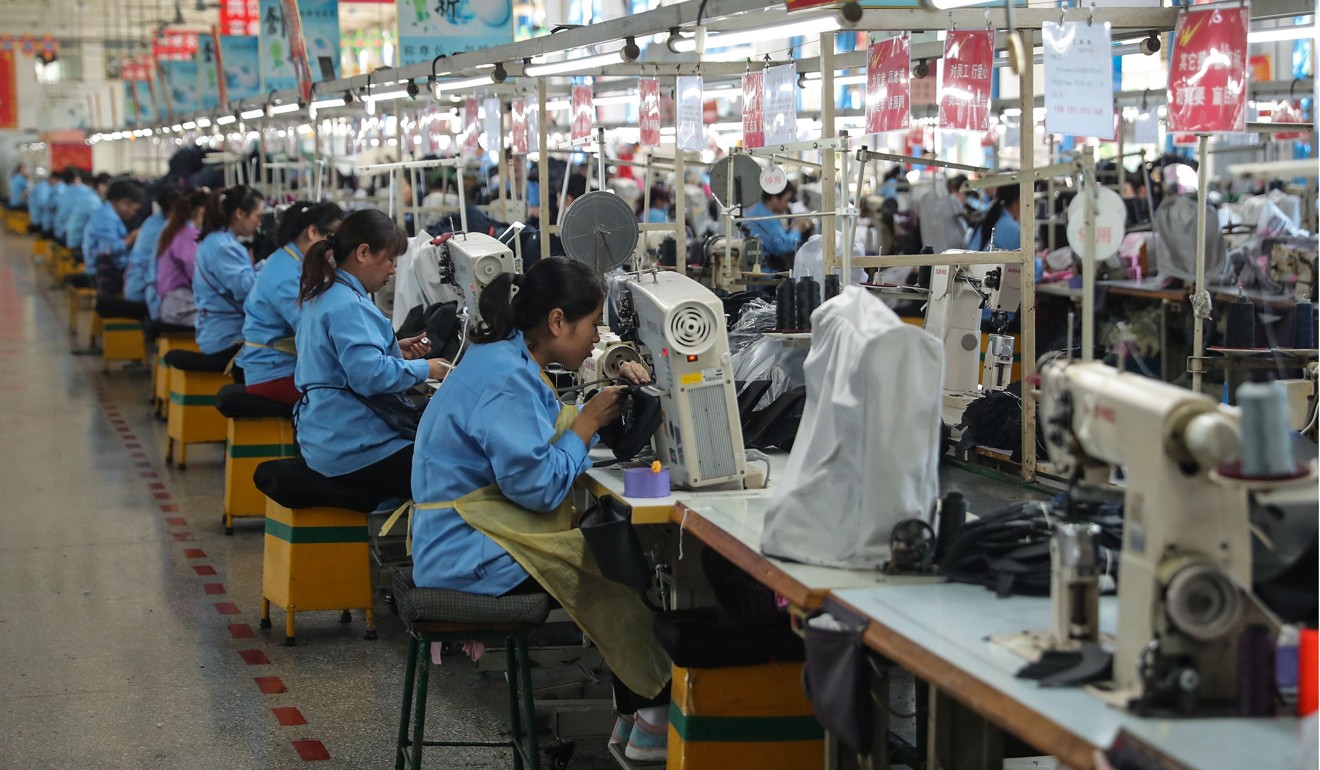
The US president’s likely dinner companions could include any of US National Security Advisor John Bolton, Secretary of State Mike Pompeo, Treasury Secretary Steve Mnuchin, Commerce Secretary Wilbur Ross, US Trade Representative Robert Lighthizer, National Economic Council Director Larry Kudlow, US ambassador to China Terry Branstad and White House National Trade Council Director Peter Navarro.
For the Chinese side, Liu, the chief trade negotiator, is expected to accompany Xi. Ding Xuexiang, Xi’s chief of staff, and Yang Jiechi, the top foreign policy adviser to Xi, are also expected to attend.
The meeting comes as the growing rivalry between the world’s two largest economies extends from trade and security issues to Taiwan and the South China Sea. The confrontation has rocked international markets, cast a shadow over the world’s economic prospects and raised the spectre of a new cold war era.
With so much at stake, Washington and Beijing each hope for some significant takeaways from the summit, including a possible ceasefire in the trade war, analysts said.
“It’s hard to guess the actual outcome of the Xi-Trump summit,” said Shi Yinhong, an international relations professor at Beijing’s Renmin University. “The best hope is that the US and China will agree to a truce to the trade war.”
Analysts, looking at recent events, speculated that an agreement to temporarily suspend the trade battle could be reached in Buenos Aires.
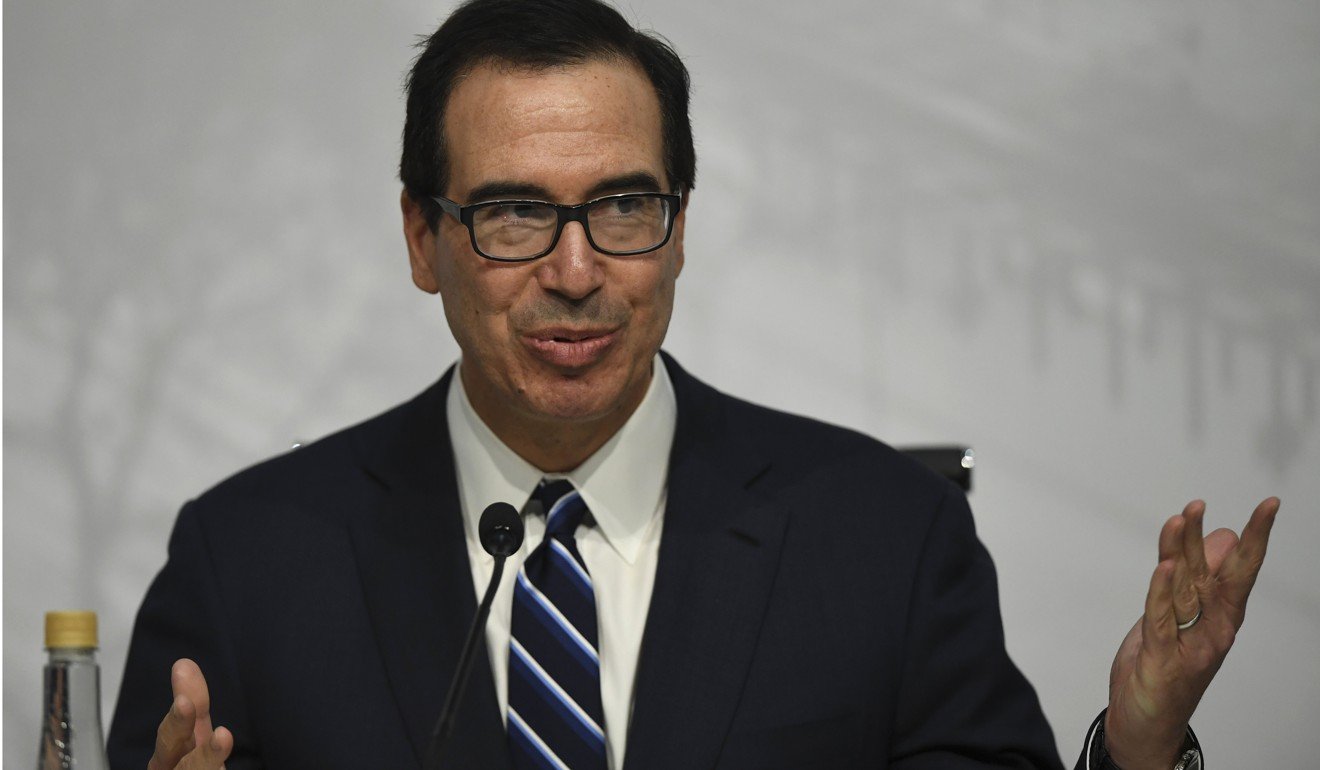
Liu Weidong, a China-US affairs specialist from the Chinese Academy of Social Sciences, said the summit’s results will be uncertain until the last minute, because Xi’s and Trump’s scope for making deals is open to question.
“The back and forth between Beijing and Washington will continue,” Liu said. “One side is trying to maximise their gains, and one side is trying to minimise losses.”
Preparations for the summit itself have been marked by plenty of back and forth manoeuvring.
Changing the meeting to Saturday night also means that before the first dish is served to the two leaders at their private dinner, they will had have multiple opportunities to rekindle their relationship at the G20 forum by sitting in the same conference room for hours for discussions, being entertained by the host country and taking part in group photos, according to the rough schedule for the international conference.
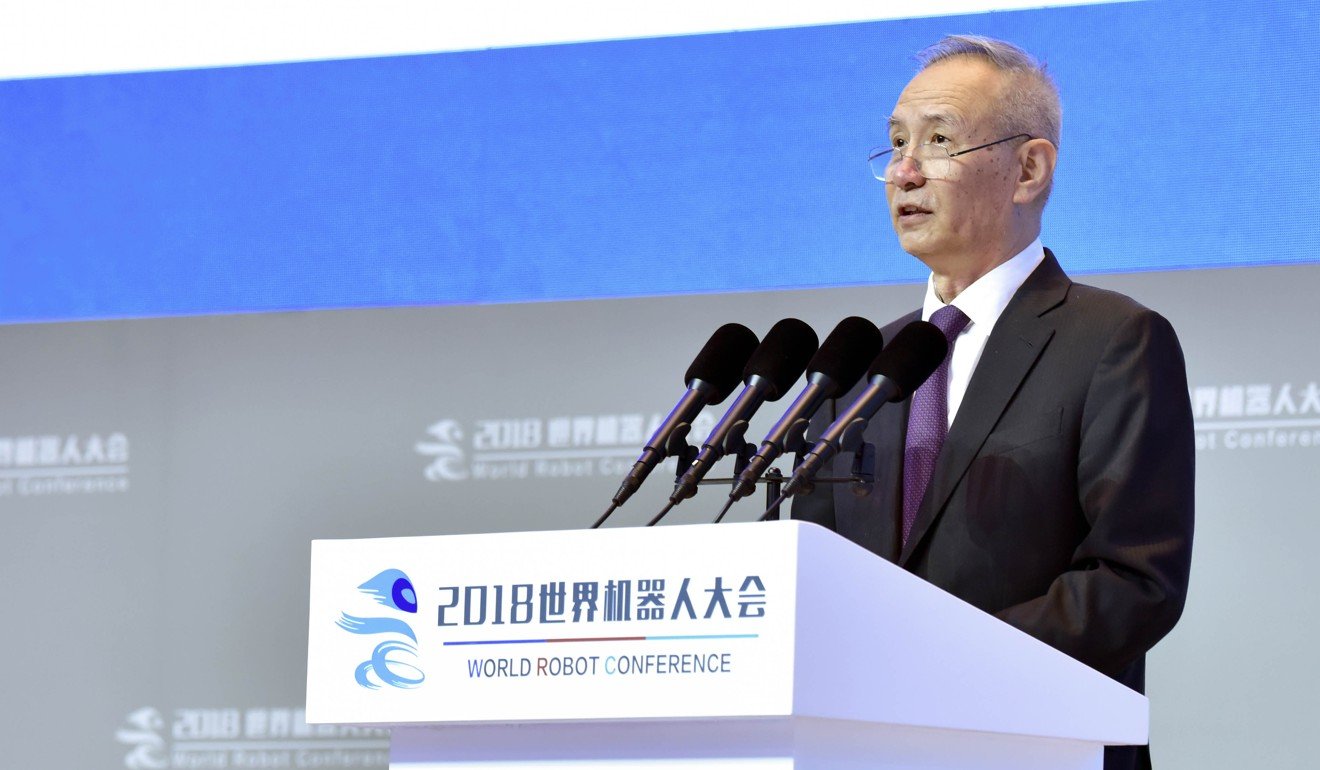
The impasse emerged a day after Xi and US Vice-President Mike Pence hit back at each other in back-to-back speeches as the trade war ground on. When China’s foreign ministry fired back at Pence, it aimed its rhetoric at the US vice-president’s words but avoided mentioning the Trump administration or Trump himself.
For his part, Trump has significantly scaled down his Twitter posts about China. The president has not tweeted about the trade battle with China since the phone conversation in which he and Xi agreed to meet.
Additional reporting by Laura Zhou

